Among the myriad of Roman emperors, few evoke as much intrigue and infamy as Gaius Julius Caesar Augustus Germanicus, better known as Caligula. Renowned for his tyrannical rule, Caligula’s reign is often highlighted by tales of extravagance, cruelty, and madness.
This article aims to delve deeper into the shocking aspects of Caligula’s governance that have left an indelible mark on history. By exploring the ten most astonishing facts about his rule, we seek to provide a comprehensive understanding of why Caligula’s name continues to resonate with terror and fascination. Through this exploration, we will shed light on the complexities of his leadership and its enduring impact on Roman history.
The Rise of Caligula
Caligula, born Gaius Caesar Augustus Germanicus, ascended to power in 37 CE, following the death of Emperor Tiberius. Despite not being the first choice due to the presence of older brothers, his lineage as the son of the esteemed Germanicus and Agrippina the Elder positioned him within the influential Julio-Claudian dynasty. This imperial heritage played a crucial role in his rise to the throne.
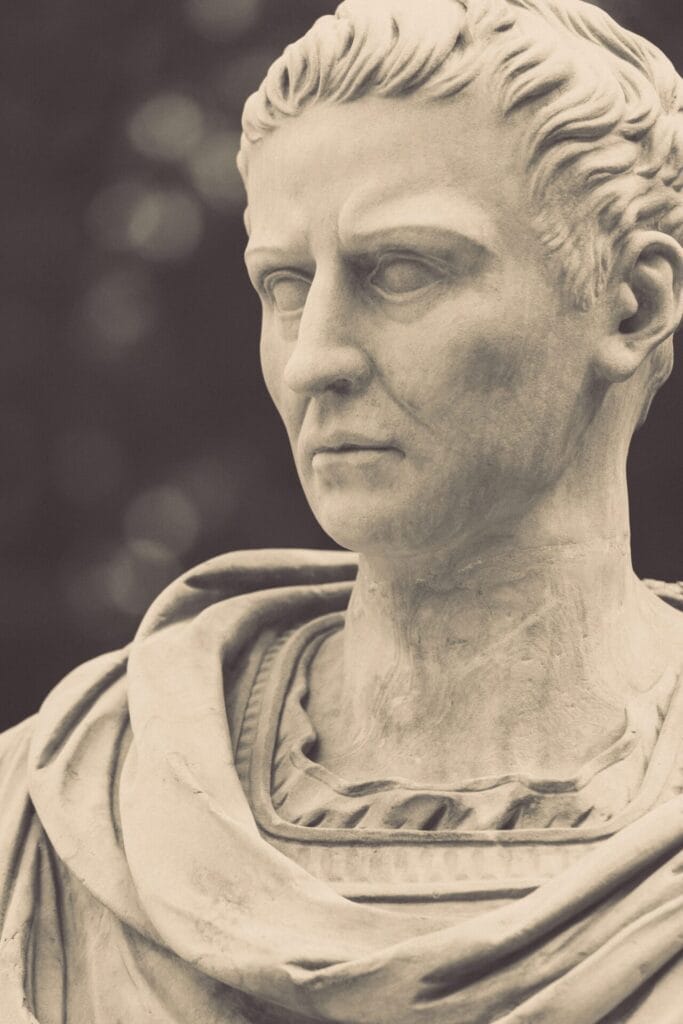
Initially, Caligula enjoyed widespread popularity, largely due to his charismatic leadership and the immediate reforms he enacted. His abolishment of unpopular taxes and the cessation of treason trials were well-received by both the Roman populace and the Senate. Furthermore, Caligula’s organization of extravagant public entertainment, such as gladiatorial games, endeared him to citizens eager for a change from the austere reign of Tiberius.
Caligula’s early reign, marked by benevolence and reform, stood in stark contrast to Tiberius’s oppressive and reclusive governance. This refreshing approach, coupled with his popular family background, initially fostered a favorable perception among the Roman people, setting the stage for what appeared to be a promising rule.
Financial Extravagance
Caligula’s reign is marked by notorious financial extravagance. His penchant for lavish spending manifested in numerous grandiose projects. One of the most audacious was a temporary pontoon bridge spanning three miles across the Bay of Naples, constructed solely for him to ride across on horseback. This spectacle exemplified his desire to showcase power and wealth through ostentatious means.
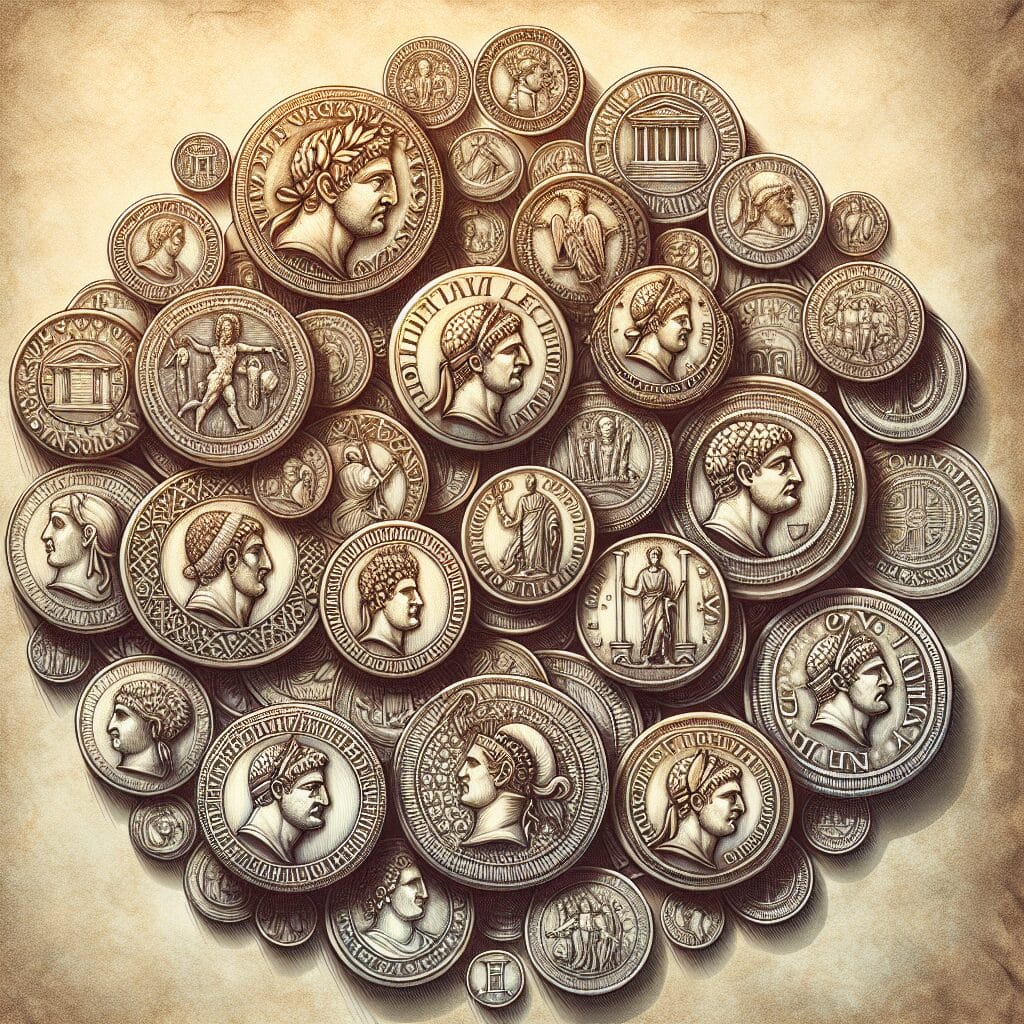
Additionally, Caligula’s love for the sea led him to commission numerous custom-made ships, detailed with extravagance as noted by his biographer Suetonius. He also hosted opulent festivals and gladiator games, spending excessively to entertain and curry favor with the Roman populace.
| Economic Aspect | Before Caligula | During Caligula |
|---|---|---|
| State Treasury | Accumulated Savings | Severe Depletion |
| Taxation | Standard Rates | Increased and New Taxes |
| Public Sentiment | Stable | Widespread Discontent |
To fund these expenditures, Caligula imposed heavy taxation, introducing new taxes and increasing existing ones. This strategy strained the Roman economy, leading to public resentment and distrust, particularly affecting the lower-income populace who bore the brunt of increased living costs.
Infamous Decline in Mental Health
The reign of Caligula is often scrutinized through the lens of speculative mental instability. Scholarly discussions, such as those highlighted in the article ‘Caligula: a neuropsychiatric explanation of his madness’, suggest that his actions may have been significantly influenced by underlying neuropsychiatric conditions. This perspective is supported by a robust foundation of 22 scholarly works, providing a glimpse into the complexities of Caligula’s mental state.
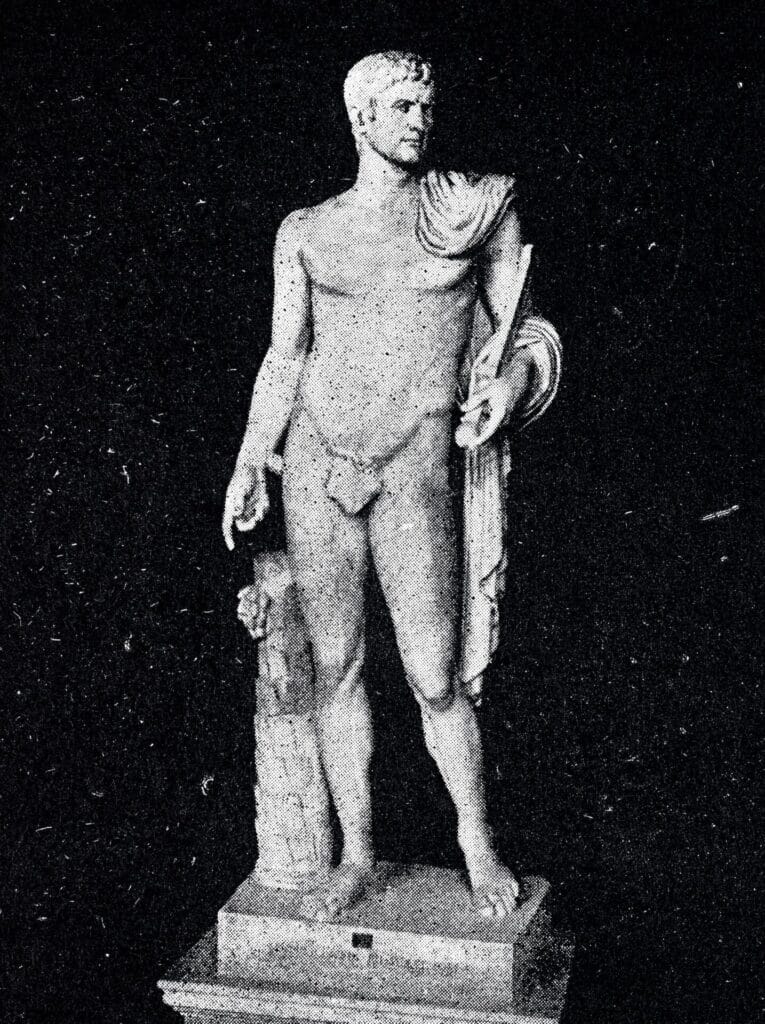
Historical accounts detail numerous instances of Caligula’s erratic behavior. After a severe illness early in his reign, his demeanor reportedly shifted, becoming increasingly autocratic and cruel. This transformation was marked by acts of paranoia, such as the execution of a young boy for coughing in his presence. Caligula’s belief in his own divinity further illustrates his obsession with power.
As historian Suetonius observed, “Caligula seemed to have lost all reason, with actions reflecting a mind veering towards madness.” Despite these accounts, the potential biases of ancient writers pose challenges in definitively understanding his mental health. Nevertheless, the exploration of these behaviors remains crucial in interpreting the tyrannical legacy of Caligula.
The Senate’s Fear and Oppression
Caligula’s interactions with the Roman Senate began with a promise of cooperation, marked by the abolition of the oppressive crime of maiestas and the release of prisoners from Tiberius’s reign. This initial period of goodwill, however, soon gave way to a regime characterized by fear and oppression. By 39 AD, Caligula’s trust in the Senate had eroded, leading to purges that saw more than thirty senators executed or driven to suicide. His contempt for the Senate is exemplified in his response to uncovered conspiracies post-Gaul campaign, where he mocked senatorial honors and threatened to dismantle the institution altogether.
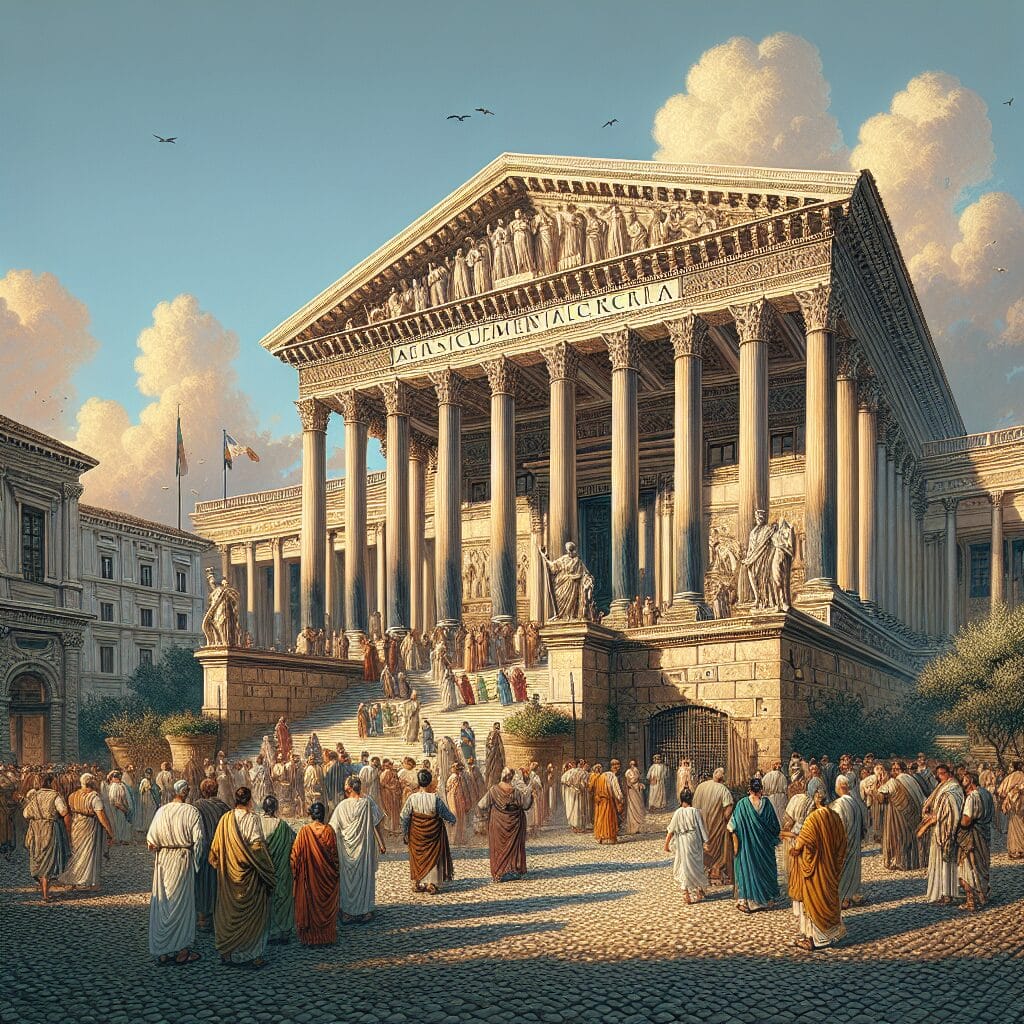
Instances of Caligula’s tyranny are vividly documented, including the execution of Tiberius’ grandson Gemellus, a clear indication of his ruthless elimination of potential threats. The emperor’s declaration of godhood and the threat to relocate Rome’s capital to Alexandria further alienated the Senate, consolidating his absolute power. Suetonius encapsulates this era by noting Caligula’s “delight in showing the Senate’s powerlessness.” Such actions not only exemplified his oppressive rule but also highlighted the violent struggle for political supremacy during his tyrannical reign.
Deification of Caligula
One of the most audacious aspects of Caligula’s reign was his proclamation of divinity. Caligula declared himself a living god, an act that significantly altered the Roman political and religious landscape. This self-deification was not merely a symbolic gesture; it had profound implications for his rule, as it positioned him above all earthly authorities, including the Senate.
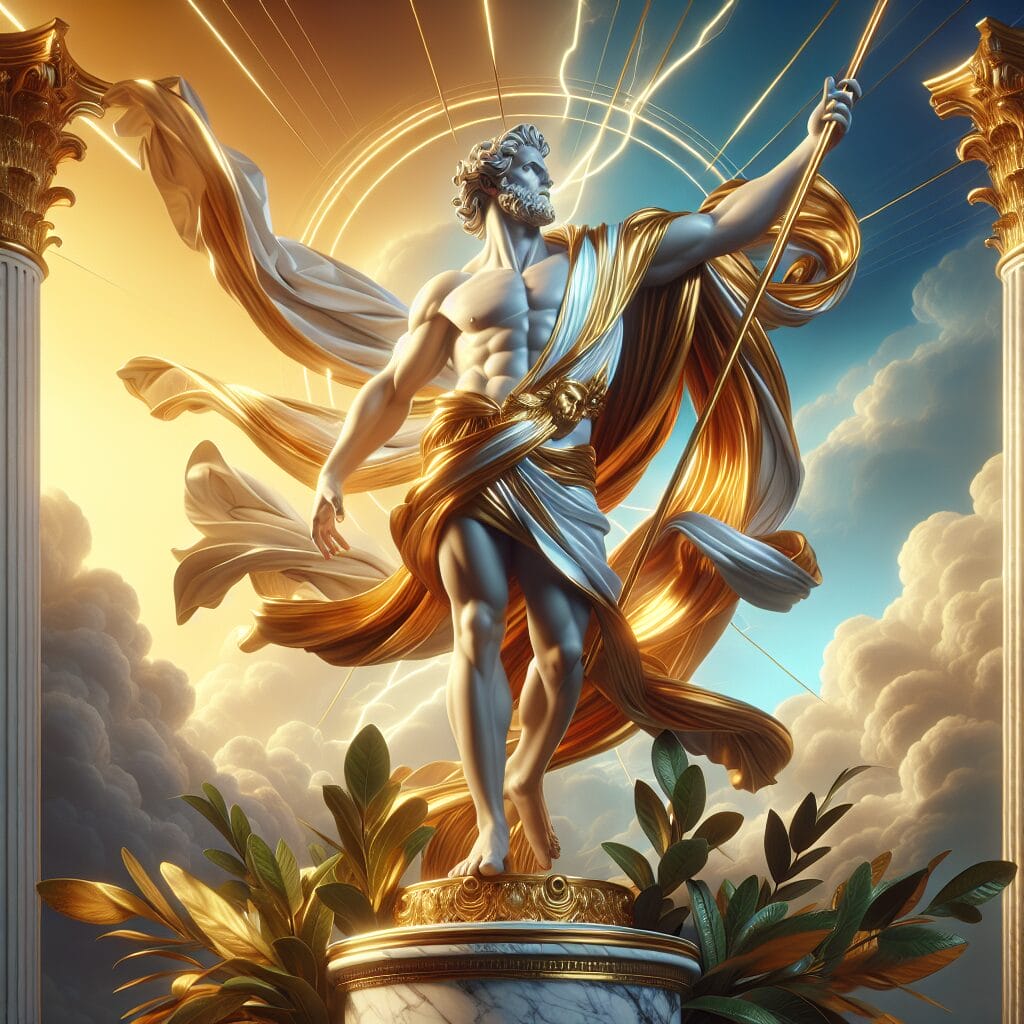
Caligula’s attempts to emulate Hellenistic god-kings were met with a mixture of fear and disdain. Many Romans viewed his divine pretensions as a tyrannical overreach, further straining his relationship with the Senate. The political elite were particularly troubled, interpreting his godhood claim as a direct challenge to their authority. This divine self-image also fueled Caligula’s oppressive tactics, reinforcing his absolute power over Rome.
A historical anecdote highlights the absurdity and tension of this period: Caligula famously ordered the construction of a temple dedicated to himself and insisted that statues of gods be altered to bear his likeness. This act of hubris not only alienated the Senate but also left a lasting impression on Roman society, cementing his legacy as one of the most controversial emperors in history.
Military Campaigns and Failures
Caligula’s military endeavors were marked by theatricality rather than traditional warfare. His campaigns to the Rhine and the English Channel in 39 and 40 A.D. exemplified this approach. Rather than engaging in strategic battles, Caligula commanded his troops to perform bizarre tasks, such as collecting seashells in their helmets, which he termed as ‘plundering the sea.’ This act of spectacle over strategy was emblematic of his erratic leadership style.
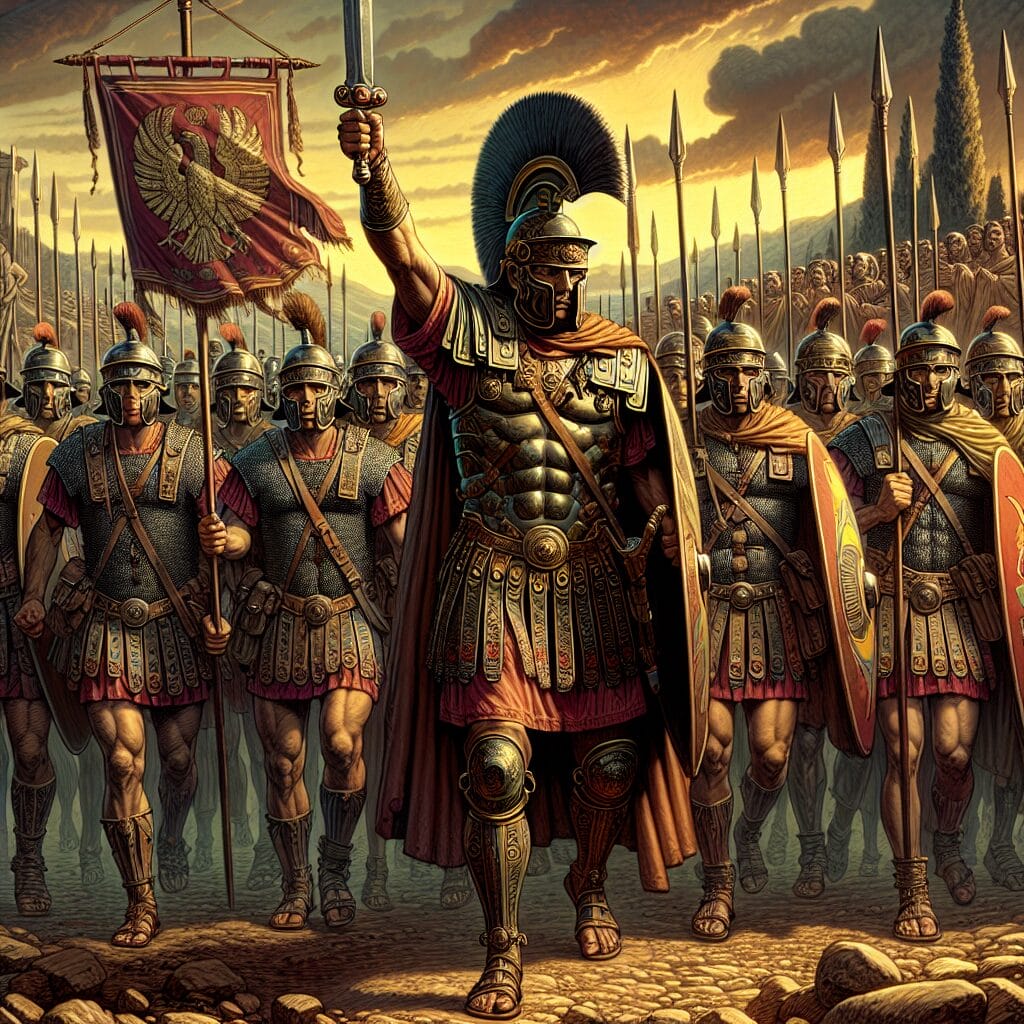
One of the most notorious failures was his declaration of war on the sea. In 40 CE, he assembled his army on the shores of the English Channel, only to instruct them to gather ‘the spoils of the sea,’ an act that mocked military valor and highlighted his inability to achieve tangible victories. These actions not only undermined his authority but also tarnished Rome’s military reputation, contributing to the perception of instability within the empire.
Caligula’s lack of military experience, compounded by his eccentric behavior, failed to secure respect and loyalty from his troops, leading to missed opportunities and a precarious position as emperor. His successor, Claudius, would later achieve the conquest of Britain, a campaign Caligula had aspired to commence, further underscoring the failures of his reign.
Public Executions and Cruelty
Caligula’s reign was infamous for its brutality, characterized by numerous public executions that served as a grim spectacle for the people of Rome. These executions were often carried out in the arena, where they doubled as entertainment, reflecting Caligula’s sadistic tendencies and his desire to instill fear among the populace.
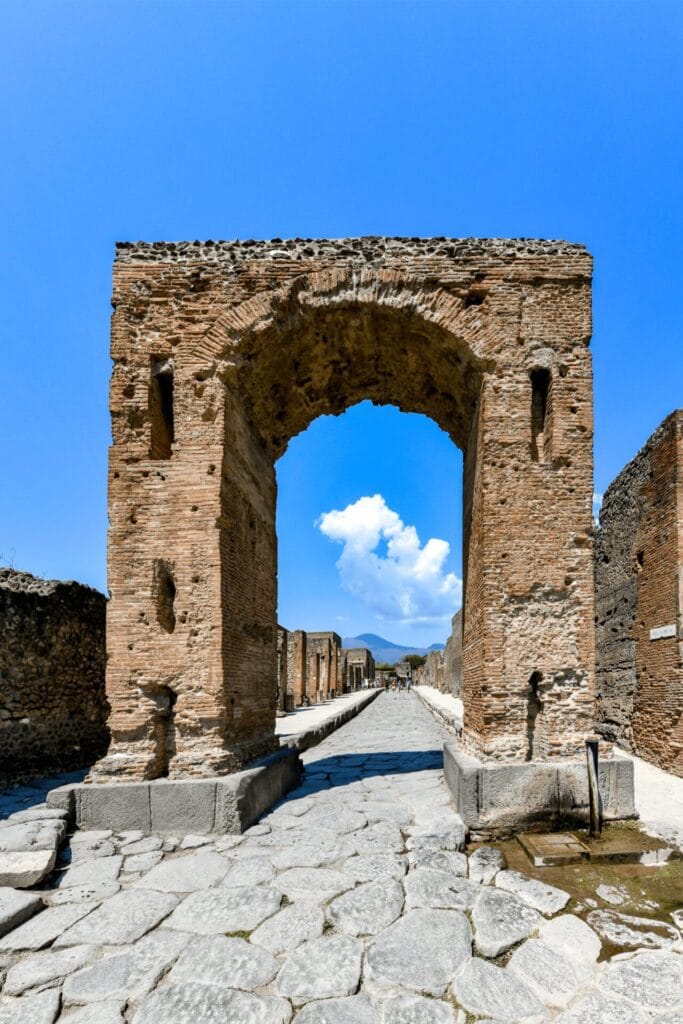
One notorious example was the execution of individuals accused of treason, which Caligula conducted with extreme cruelty. For instance, he reportedly forced families to watch the execution of their loved ones, thereby amplifying the terror and humiliation associated with his rule.
The impact of these public executions on Roman society was profound. They created a climate of fear and suspicion, where citizens were wary of expressing dissent or opposition to Caligula’s rule. This oppressive atmosphere stifled political discourse and eroded trust within the community.
Historians, such as Suetonius, have documented these events, highlighting how Caligula’s cruelty not only undermined societal cohesion but also contributed to the eventual collapse of his regime. His tyrannical methods served as a cautionary tale of how absolute power can corrupt and destabilize an empire.
Controversial Relationships and Scandals
Caligula’s reign was marked by a series of controversial relationships and scandals that shocked both his contemporaries and later historians. Among the key figures in his personal life was his sister, Drusilla, with whom he allegedly had an incestuous relationship. This relationship was a significant source of scandal, particularly after Drusilla’s death in 38 A.D., which left Caligula in a state of profound grief.
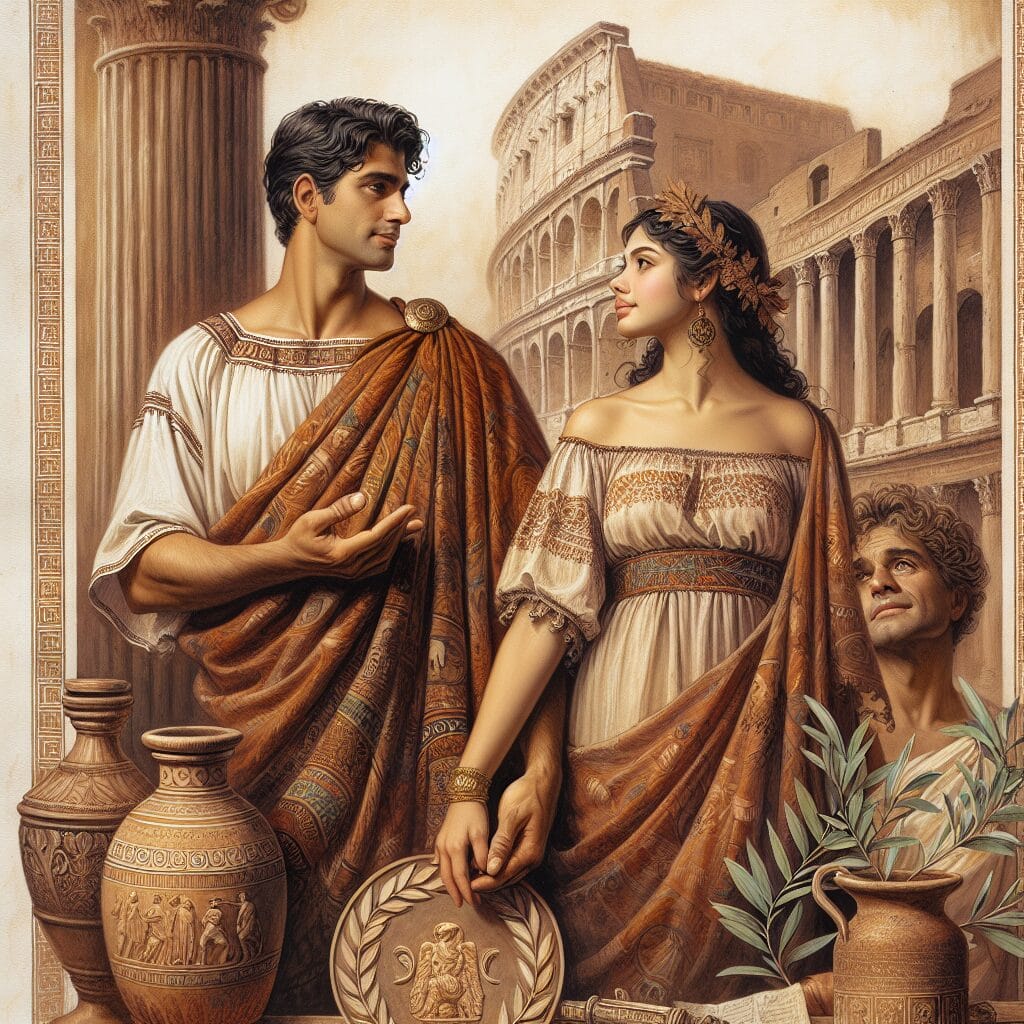
Another notable figure was his fourth wife, Milonia Caesonia, whom he married in 39 A.D. Caesonia was widely regarded as a scandalous match due to her reputation and age. Caligula’s public displays of affection and the extravagant lifestyle they led together further fueled gossip and disdain among the Roman elite.
Throughout his reign, Caligula’s personal life was rife with rumors and accusations, contributing to his notoriety. These scandals were not merely personal affairs but had political implications, as they reflected his unpredictable behavior and disregard for Roman societal norms. Such actions exacerbated tensions with the Senate and ultimately eroded his support among the Roman populace, contributing to his downfall in 41 A.D.
Cultural Impact of Caligula’s Rule
Caligula’s reign, though brief, had a profound influence on Roman culture. His eccentric and often tyrannical actions led to significant cultural shifts during his rule. Caligula’s self-deification and extravagant displays of power challenged traditional Roman values and norms, setting a precedent for imperial excess. These actions contributed to an atmosphere of fear and uncertainty, impacting the social and political fabric of Rome.
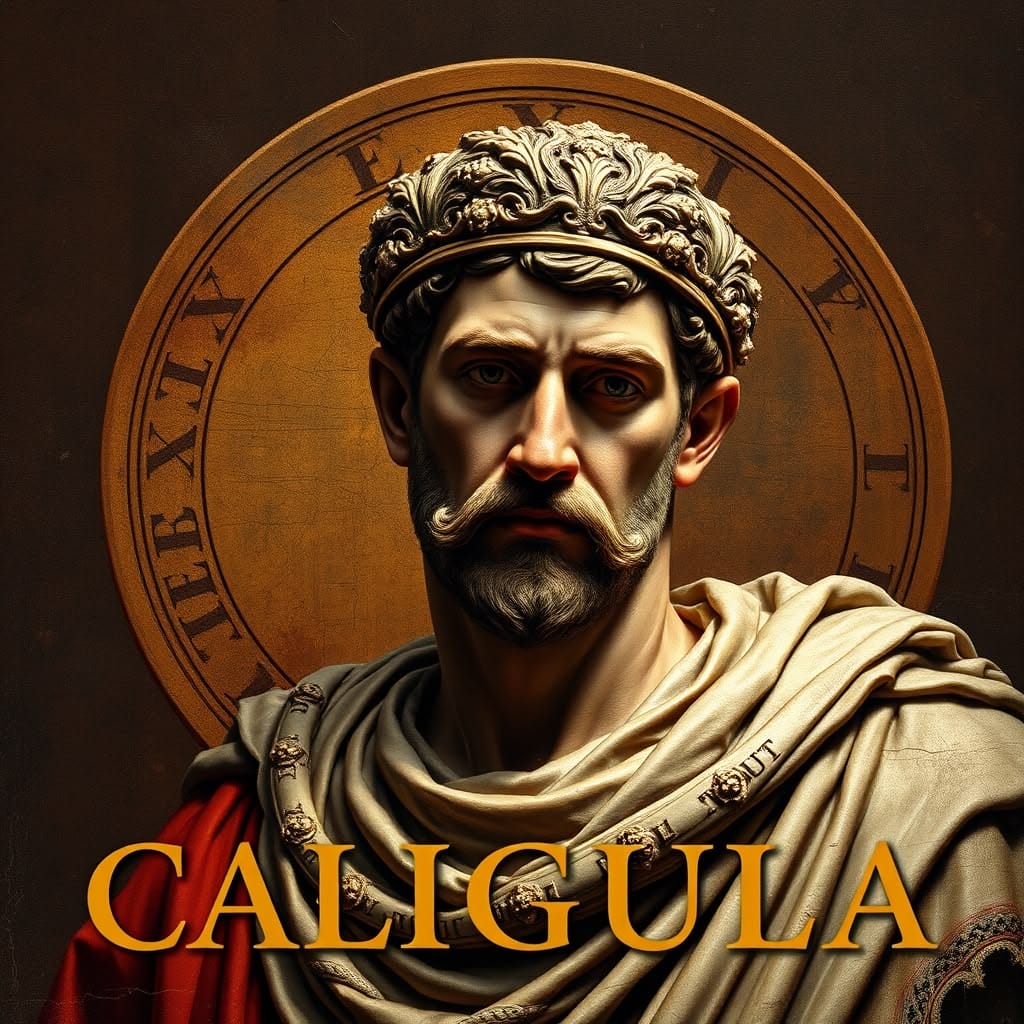
In literature and media, Caligula’s notoriety has left a lasting legacy. His rule has been depicted in numerous works, highlighting his descent into madness and tyranny. The most notable portrayal is in the 1979 film “Caligula,” which dramatizes his reign with a focus on his infamous decadence and cruelty. This film, along with other literary adaptations, underscores the enduring fascination with his reign and its dramatic elements.
Caligula’s cultural impact extends beyond his lifetime, influencing both historical interpretations and contemporary portrayals. His rule serves as a cautionary tale of absolute power’s potential for corruption and excess, continuing to captivate audiences and inspire discussions on the nature of leadership and tyranny.
Caligula’s Assassination
The assassination of Caligula was the culmination of mounting discontent among Rome’s elite, fueled by his erratic reign and military failures. His bizarre declaration of war on the sea and other eccentricities contributed to a perception of instability, prompting a group of conspirators to take drastic action.
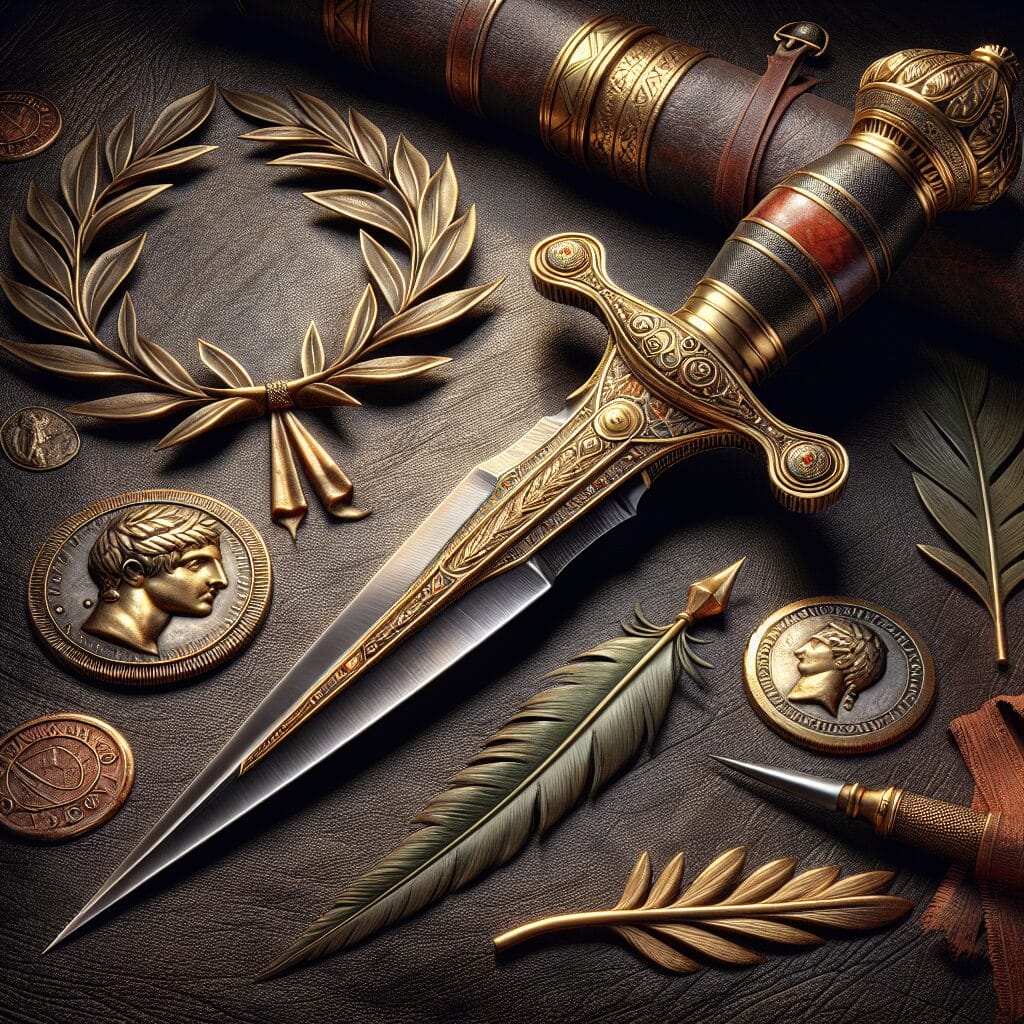
The conspiracy was led by Cassius Chaerea, a member of the Praetorian Guard, alongside influential senators. These figures were motivated by a desire to restore stability and regain control from an emperor whose behavior had become untenable. The plot was executed on January 24, 41 AD, during a series of games held in Caligula’s honor.
As Caligula attended the event, the conspirators seized the opportunity to strike. Chaerea, along with fellow guardsmen, attacked the emperor, delivering fatal blows. The chaos continued as the conspirators moved swiftly to eliminate his family, ensuring that no heirs could claim the throne.
The immediate aftermath saw Claudius, Caligula’s uncle, ascend to power. The transition was marked by a swift consolidation of authority, as Claudius sought to distance his regime from the excesses of Caligula’s rule. The assassination underscored the volatility of Roman politics, setting a precedent for future power struggles.
Legacy and Historical Interpretations
The legacy of Caligula, the infamous Roman emperor, remains a subject of intense scholarly debate. Historians are divided on whether he was a madman or a misunderstood ruler. Much of Caligula’s notoriety may be attributed to propaganda rather than factual accounts, with his reign often depicted as a period marked by violence and excess.
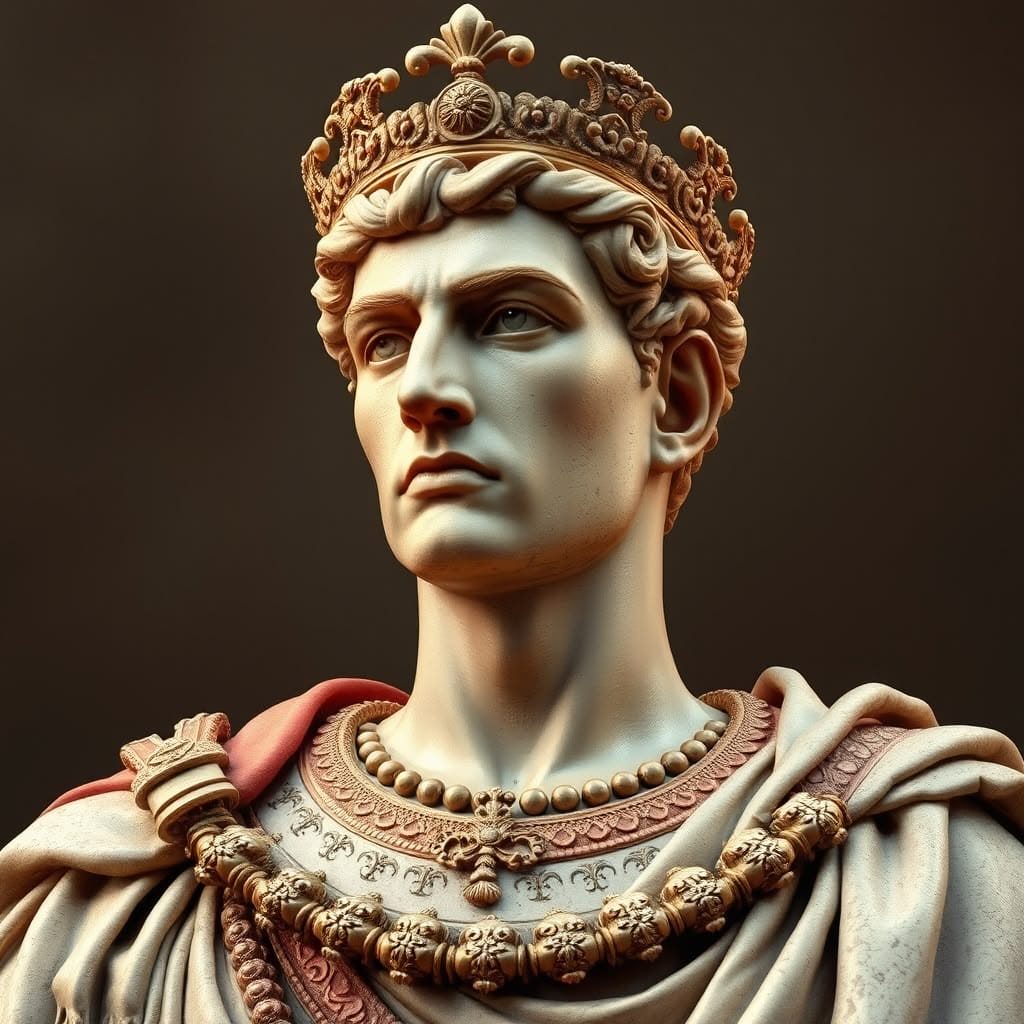
Caligula’s mental state is a focal point of historical analysis. Some historians, like Anthony A. Barrett, argue that while Caligula exhibited cruel behavior, he was not necessarily insane. Barrett suggests that his actions, although extreme, were rational decisions influenced by the immense power he held, drawing parallels to strategic leaders such as Joseph Stalin. This perspective challenges the retroactive diagnoses of mental disorders, highlighting the importance of questioning the reliability of accounts from political adversaries.
Infamous anecdotes, such as his alleged deification and making his horse a consul, may have been exaggerated, reflecting biases of ancient historians like Suetonius. Thus, while Caligula’s reputation for cruelty endures, it is crucial to consider the context of his rule and potential distortions in historical narratives.
Conclusion on Caligula’s Tyranny
Throughout his reign, Caligula’s actions and decisions have been a source of fascination and controversy. Initially beloved for his reforms and public appeal, his rule soon descended into a period marked by violence and excess. His relationship with the Senate, military failures, and self-deification reflect a ruler whose legacy is marred by both propaganda and possible mental instability.
Despite his notoriety, it is crucial to consider the context and biases of historical narratives when evaluating Caligula’s tyranny. His legacy prompts ongoing debates among historians, who oscillate between viewing him as a madman or a misunderstood strategic leader. In understanding Caligula’s rule, one must navigate the complex interplay of power, perception, and historical interpretation.
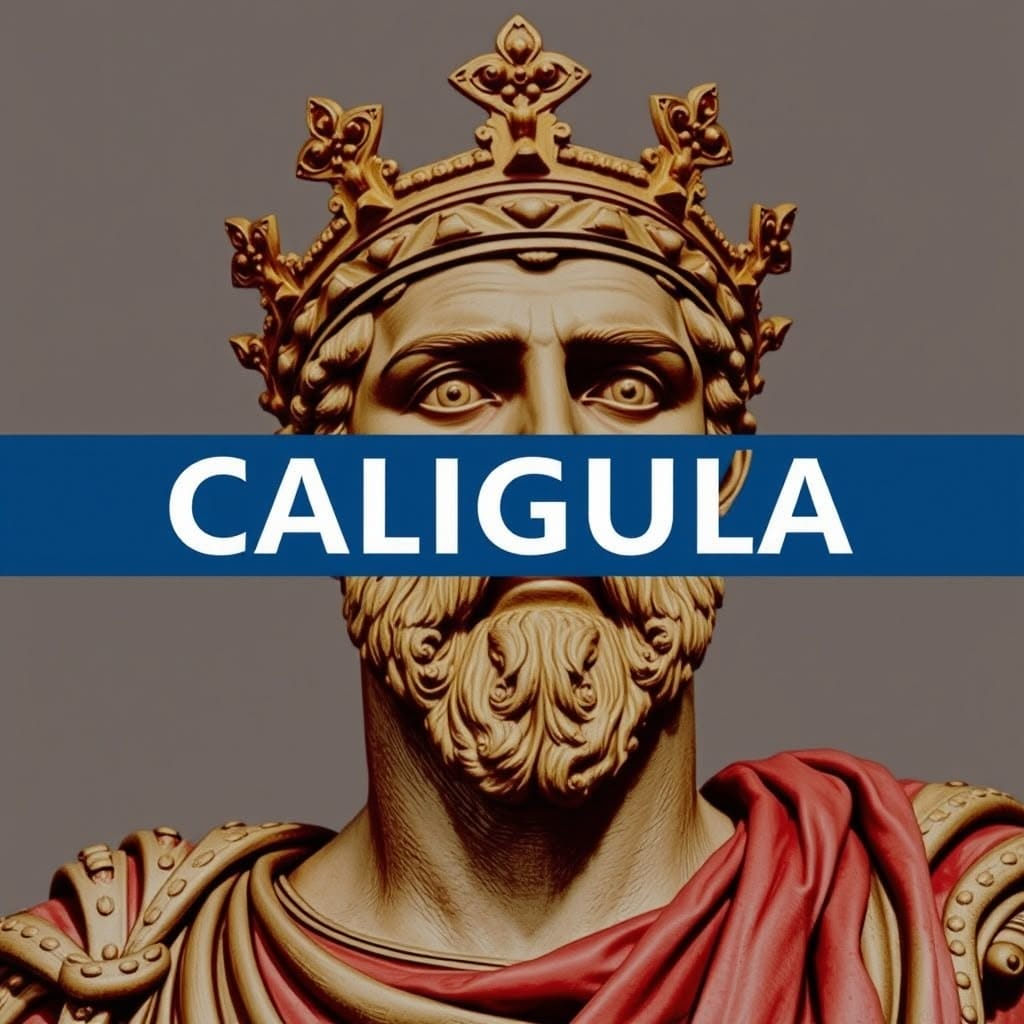
FAQs About Caligula
- Was Caligula truly insane? Historians are divided on this matter. While some attribute his erratic behavior to a severe illness, others, like Anthony A. Barrett, argue that his actions were strategic, influenced by the immense power he wielded.
- Did Caligula really make his horse a consul? This infamous story is often cited as evidence of his madness. However, it may have been exaggerated or misinterpreted, as suggested by historical analyses questioning the reliability of such accounts.
- How did Caligula’s early life influence his reign? Born into the Julio-Claudian dynasty, Caligula’s childhood was marked by tragedy, including the deaths of his parents, which shaped his approach to power.
- What were Caligula’s relationships with the Roman Senate and military? His reign was marked by conflict with the Senate, resulting in violent purges, but his military campaigns, despite failures, were sometimes strategic responses to disobedience.
- How is Caligula viewed today? Caligula’s legacy is complex, often portrayed as either a madman or a misunderstood ruler. The debates continue regarding the accuracy of historical narratives and potential propaganda.

